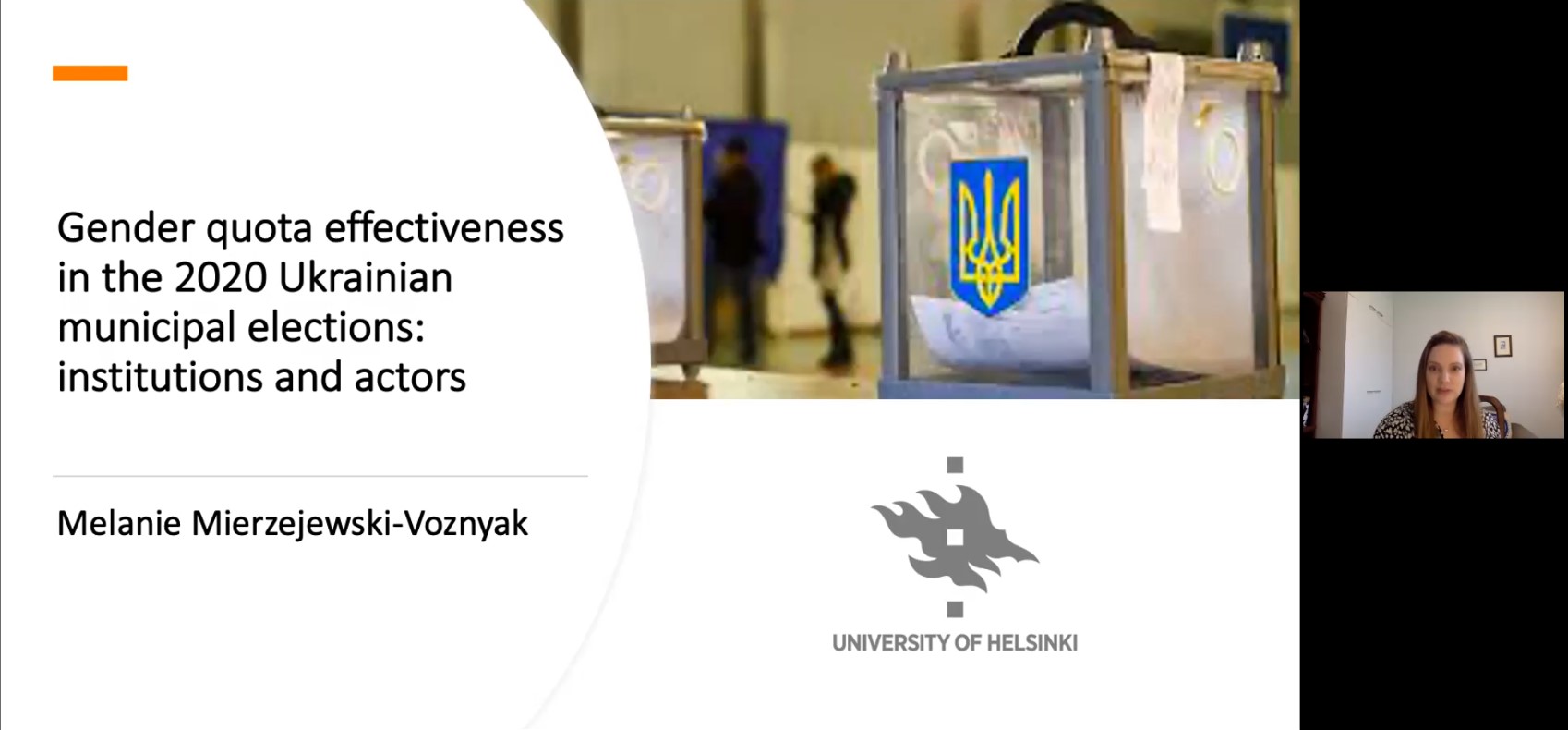On the 5th of May, we had yet another ElMaRB seminar, this time with Melanie Mierzejewski-Voznyak, Visiting researcher at the Aleksanteri Institute, who gave a talk ‘Gender quota effectiveness in Ukrainian municipal elections: institutions and actors’. Valeria Umanets, Ph.D. Candidate in Political Science at the University of Wisconsin–Madison, served as a discussant.

Over the past few decades, legislative gender gaps gradually decreased in political systems around the world with the introduction of gender quotas that have fundamentally changed political competition. While today gender quotas are common in Europe, only one-third of former Soviet states adopted such measures (Armenia, Kyrgyzstan, Uzbekistan, and most recently Ukraine and Georgia). Melanie Mierzejewski-Voznyak’s research analyses the 2020 Ukrainian local elections and the impact of the Electoral Code adopted in 2019, particularly as concerns the new gender quota requirements. According to Melanie Mierzejewski-Voznyak, the 2020 local elections present an interesting puzzle; while these elections included an enforceable gender quota that led to an increase in women elected in bigger communities, the overall impact of the quota was limited with fewer women being elected to local councils where they have historically performed very well.
Mierzejewski-Voznyak analysed the impact and effectiveness of gender quotas in the Ukrainian 2020 local elections by focusing on institutional factors – electoral law and policy design – as well as party preferences concerning gender equality. By adopting a rational choice approach, she accounted for both institutional constraints and individual action. Melanie came to the conclusion, that the impact of the gender quota in Ukraine was limited to achieving a more balanced representation of women in the election process, though not in overall elected officials. The positive effects of Ukraine’s gender quota were specifically a result of 1) high costs for non-compliance and 2) the inclusion of a placement mandate that forced parties to go beyond meeting quota size and place women in winnable positions. In a party system comprised of weakly ideologically motivated parties, such as Ukraine, institutions matter for the effectiveness of candidate quotas. Her findings thus suggest that in newer democracies in the post-Soviet context, pragmatism rather than ideology drives parties’ decisions to comply with gender quota requirements.
This research will be published as an article in the near future and we are looking forward to reading it.
